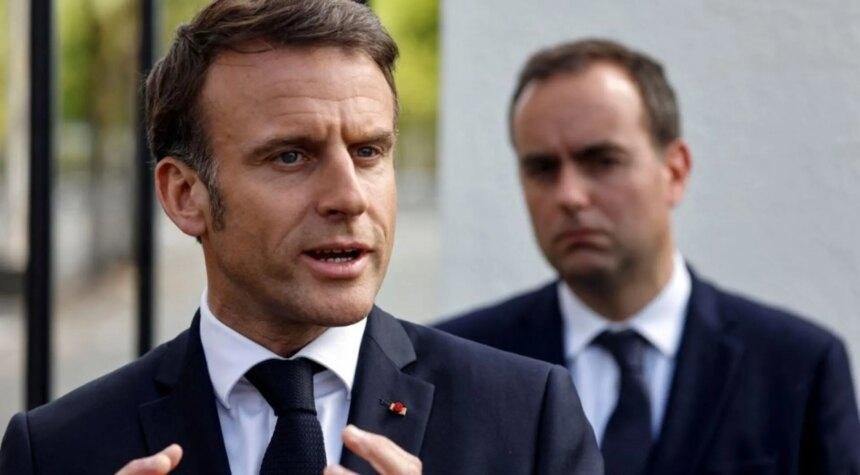Political Turmoil in France: Macron Faces Growing Pressure Amid Parliamentary Paralysis
France is currently engulfed in a political crisis that has escalated following the abrupt resignation of President Emmanuel Macron‘s fifth prime minister in less than two years. The resignation, which occurred just 27 days into the new administration, has intensified calls for new elections and raised questions about Macron’s leadership and the future of his government.
A Rapid Succession of Leadership Changes
The recent political upheaval is not an isolated incident but rather part of a broader pattern of instability that has characterized Macron’s presidency. Since taking office in 2017, Macron has faced significant challenges, including widespread protests against pension reforms and the COVID-19 pandemic’s economic fallout. The resignation of Prime Minister Élisabeth Borne, who had been appointed to navigate these turbulent waters, underscores the difficulties Macron faces in maintaining a stable government.
Borne’s departure has left a leadership vacuum at a time when France is grappling with pressing issues such as inflation, energy shortages, and social unrest. The rapid turnover of prime ministers raises concerns about the government’s ability to implement effective policies and respond to the needs of the French populace.
Calls for New Elections
In the wake of Borne’s resignation, there has been a surge in calls for new parliamentary elections. Critics argue that the current government lacks legitimacy, given its inability to secure a stable majority in the National Assembly. The political landscape has shifted dramatically since the last elections, with Macron’s centrist Renaissance party losing its absolute majority in 2022. This has led to a fragmented parliament where coalition-building has become increasingly challenging.
Political analysts suggest that new elections could provide an opportunity for voters to express their dissatisfaction with the current state of affairs. Thierry Mariani, a member of the European Parliament from the far-right National Rally Party, has been vocal in advocating for a fresh electoral mandate. He argues that the current government is out of touch with the needs of the French people and that new elections are essential for restoring public confidence in the political system.
Macron’s Leadership Under Scrutiny
As the pressure mounts, Macron’s leadership is under intense scrutiny. The president, who once enjoyed a reputation as a reformist leader, now faces accusations of being disconnected from the realities faced by ordinary citizens. Eleonore Caroit, a member of Macron’s own Renaissance party, acknowledges the challenges ahead but emphasizes the need for unity and collaboration to navigate the crisis.
The political landscape in France is further complicated by the rise of populist movements on both the left and right. The French Communist Party, represented by Eric Bocquet, has criticized Macron’s policies as favoring the wealthy while neglecting the working class. This sentiment resonates with many voters who feel left behind by the government’s economic strategies.
Historical Context: A Pattern of Political Instability
France’s current political turmoil is not unprecedented. The country has a long history of political instability, characterized by frequent changes in government and shifts in public sentiment. The Fifth Republic, established in 1958, has seen numerous prime ministers come and go, often in response to crises that have shaken public confidence in the government.
The political landscape has evolved significantly over the decades, with the rise of new parties and movements challenging traditional political structures. The current situation reflects a broader trend of disillusionment with established political elites, a sentiment that has been amplified by social media and grassroots activism.
The Road Ahead: What’s Next for France?
As France navigates this turbulent period, the question remains: what lies ahead for the nation? The prospect of new elections could reshape the political landscape, but it also carries risks. A fragmented parliament could lead to further gridlock, making it difficult for any government to implement meaningful reforms.
In the meantime, Macron’s administration must address pressing issues such as rising living costs, energy security, and social cohesion. The government’s ability to respond effectively to these challenges will be crucial in determining its future viability.
Conclusion
France stands at a crossroads, with political instability threatening to undermine the progress made in recent years. As President Macron faces mounting pressure to resign and calls for new elections grow louder, the future of his government hangs in the balance. The coming weeks will be critical in shaping the direction of French politics and determining whether the nation can emerge from this crisis stronger and more united.











